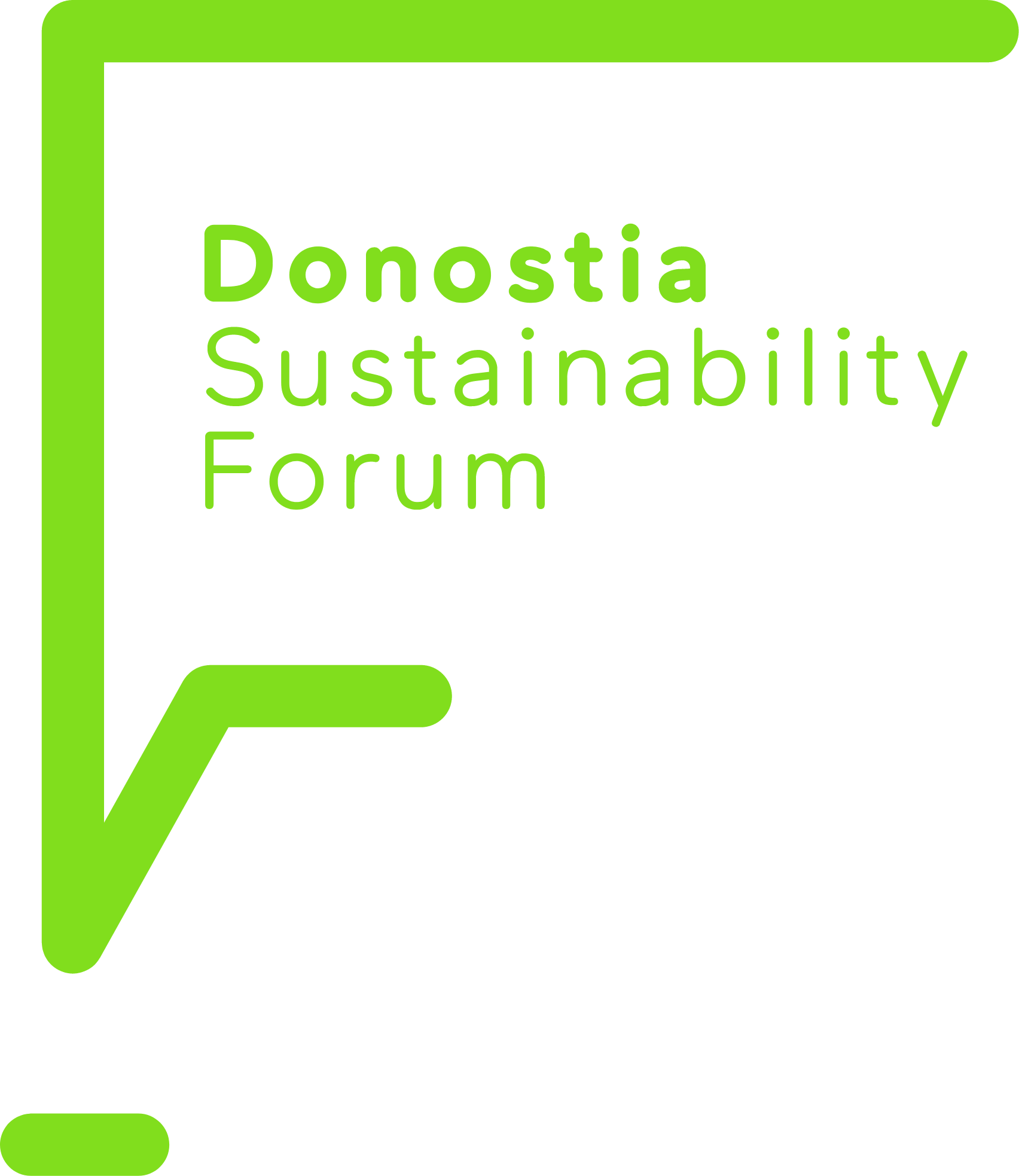Esther Badiola: "The climate agenda has no political persuasion"
A goal without a plan is just a wish; such an ambitious goal as the green transition defined by the European Green Deal needs financing that is up to the task. During a seminar of the Donostia Sustainability Forum, the economist Esther Badiola, senior adviser of the Climate Change Office in the EIB Operations Department, went over the key role that the institution is playing in the transition towards a sustainable economy.
In 2020, the European Investment Bank – established in 1958 to support the policies of the European Union – embarked on the process to become the European Climate Bank, the financial tool to meet the targets set in the Paris Agreement and achieve climate neutrality by 2050.
“This decision, approved in the European Green Deal, truly addresses the concern of public opinion. In 2021, 98% of European said that climate change was a serious problem and 78% considered it to be very serious", explained Esther Badiola.
Green financing
The goals of the EIB, a non-profit public bank, includes financing the green transition within and outside Europe. Every year, at least 50 per cent of its investments have to be earmarked for climate action and 15 per cent of that sum must be allocated to climate change adaptation.
Accordingly, in 2023 it signed financing arrangements to the tune of €88 billion, allocated to over 900 priority projects for public administrations and to finance companies in the private sector. In turn, investment in green financing reached a historical high of €49 billion last year, invested in climate action and environmental sustainability.
“Speeding up the transition in green investments, ensuring a just transition for everyone, supporting activities in line with the Paris Agreement, and making everything we were doing at the bank coherent”, explained Esther Badiola. She also stressed what the EIB no longer finances: "Since 2021, the Bank has not financed activities that are not in line with the Paris Agreement goals. We no longer build ports, airports and roads; we are now more focused on the circular economy, biodiversity and nature, along with new financial products consistent with the green agenda and the economic recovery of the regions, for example, that are closely linked to fossil fuels.
Vitoria-Gazteiz, a digital and sustainable city
The green transition in cities is one of the priority goals of the EIB, as Esther Badiola explained. "Years ago, our focus was on ensuring that cities had access to basic critical infrastructures; we then moved on to a phase when we supported planning, urban regeneration. And we are now immersed in plans for digital and sustainable cities. For example, Vitoria has been selected and its aim is become a practically neutral city by 2030, acting as a torch bearer in a mission launched by the European Commission".
Regarding the upcoming European elections, Esther Badiola urged the audience to vote. "A great deal is decided in Europe" and she went on to add that regardless of the outcome of the elections, the shift taken by the European Union is now well established. "What could change is the focus of the priorities, but the impact of climate change is brutal; insurance companies calculated losses of €60 billion each year".
Esther Badiola regretted that climate action has been politicised. "The climate agenda has no political persuasion. Politicians may have different opinions; some may think that a policy is too costly, but the costs of the impacts of climate change are greater", she concluded.




